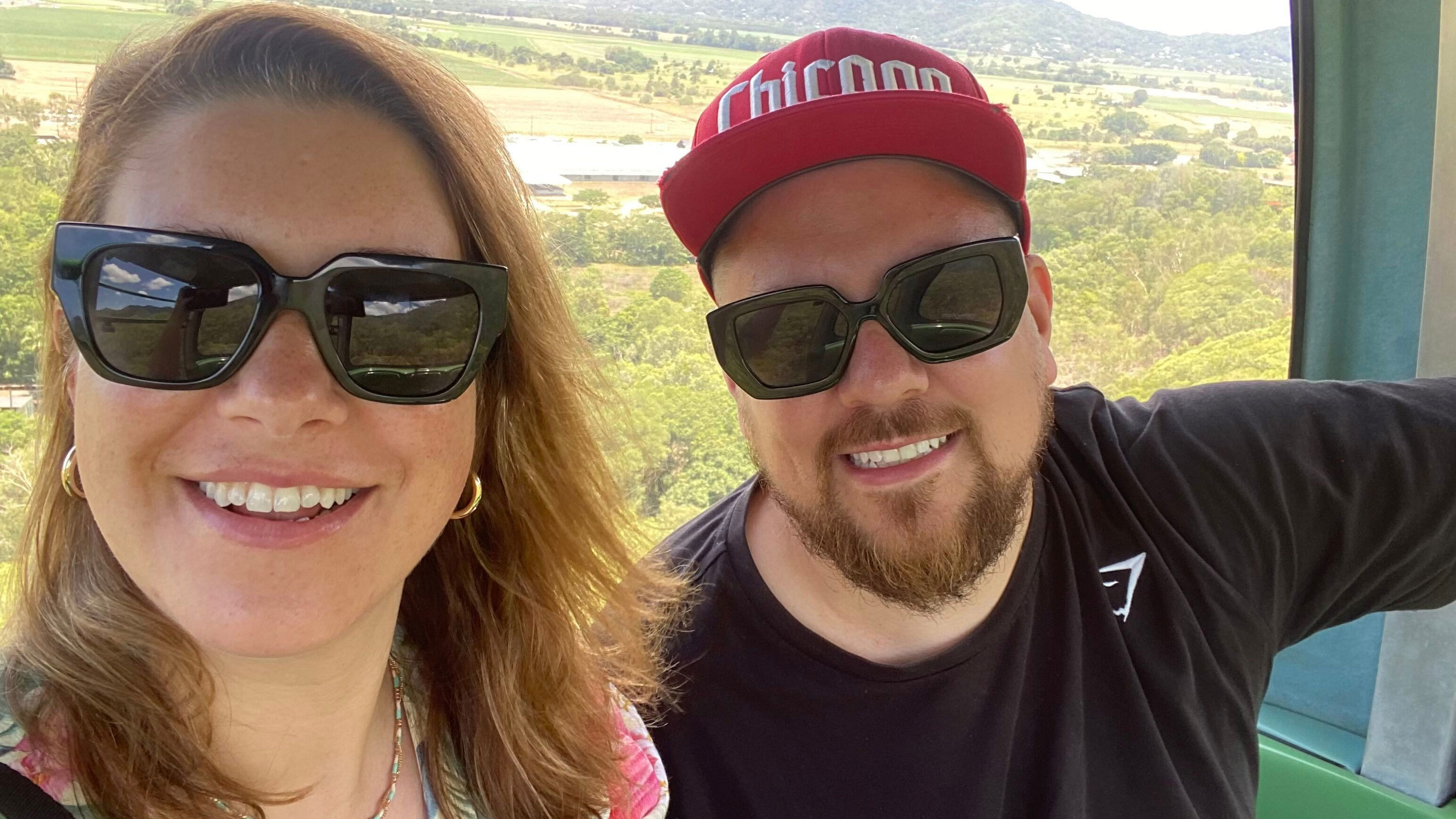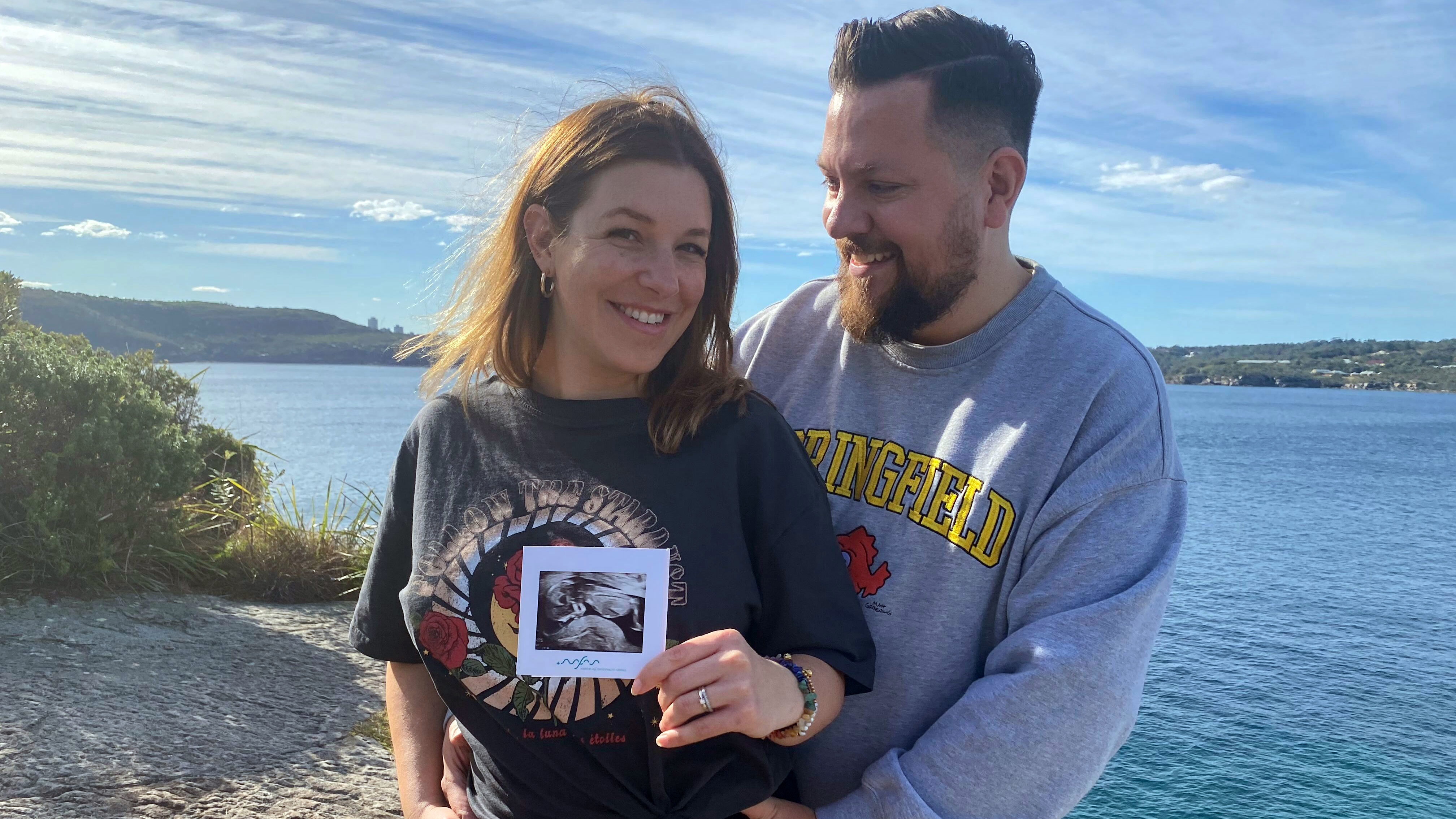A couple who have been living in Australia for more than a decade have issued a plea to Immigration Minister Andrew Giles to allow them - and their unborn child - to stay in the country.
Michaela Loudinova and her husband Miroslav Sulak have been fighting to remain in Australia for the last five years, ever since their application for permanent residency was rejected in what was assumed to have been a "mistake".
The pair first came to Sydney from their native Czech Republic in January 2013 on student visas.
READ MORE: Moment dad realised missing son was ok

"We absolutely fell in love with this country and wanted to stay," Loudinova said.
Loudinova extended her studies to include management and soon landed a job at a restaurant in Sydney's eastern suburbs.
As the restaurant manager, Loudinova was sponsored by her employer for a skilled visa.
Three other employees at the same restaurant, who all worked in the kitchen, also applied for a sponsored skilled visa at the same time as Loudinova.
However, the restaurant workers were all left stunned and confused when, in May 2018, two of them were granted visas, and two - including Loudinova - received refusals.
Loudinova's visa was refused because the immigration officer assessing her application determined her employer didn't show enough evidence to prove they were capable of paying her salary for the next two years.
However, all four applications were all based on the same paperwork, leaving everyone scratching their heads.
"We were assured by our lawyer that this must be a mistake, a 'jurisdictional error', she called it," Loudinova said.
READ MORE: Boy plunges 30m after dodging photo at Grand Canyon

Following their lawyer's advice, Loudinova and her husband lodged their case with the Administrative Appeals Tribunal (AAT).
Loudinova continued to work for her employer for two more years until the COVID-19 pandemic hit and the restaurant closed down.
"One day I had a job and the next day I didn't," Loudinova said.
"All our hopes for the future basically ended that day," Sulak said, explaining that, because the business tied to their visa nomination was no longer in operation, their application to stay was also likely to have been rendered invalid.
Do you have a story? Contact reporter Emily McPherson at emcpherson@nine.com.au
With heavy hearts, the couple waited for their case to be called before the AAT tribunal.
By the time the hearing date finally came in April 2022 - four years after their appeal was first lodged - Sulak said they held out little hope and were preparing to pack up and leave the country.
"We sold all our belongings and we had four suitcases at that time and we were basically about to buy our flight tickets," he said.
"We were heartbroken and I don't really like to think back to that time because we were basically at the lowest point in our lives."
To their surprise, the tribunal member was sympathetic to their plight.
While the tribunal member was not able to reverse the decision, she decided to refer their case to Giles for a possible ministerial intervention.
In extraordinary circumstances, the immigration minister has the power to intervene and grant a person permanent residency if it is in the public interest to do so.
In the tribunal's decision record, the tribunal member noted the inconsistencies between Loudinova's visa outcome and her colleagues in the same restaurant, writing the result "does appear to be unfair".
The tribunal member highlighted the economic benefit of allowing the couple to stay in Australia, their community support and charitable works.
An online petition calling for the couple to be granted permanent residency has so far attracted more than 8000 signatures.
Loudinova currently holds down a job as a concierge and Sulak works for an electrical company.

The couple's case was referred to the Department of Home Affairs for a possible ministerial intervention 15 months ago, in May last year.
However, Loudinova and Sulak say they have heard nothing since then.
Every three months the couple is required to apply for a new bridging visa to stay in the country, adding to the precariousness of their situation.
As well as the emotional toll their visa journey had taken, Sulak said their efforts to stay in Australia had come with a significant financial burden.
"A few years ago, I ran a little calculation on how much our immigration process had cost us over the last 10 years, it came to the $50,000 mark," he said.
The couple said amid the stress of their visa battle they had recently had some wonderful news, with Loudinova falling pregnant with their first child after a long struggle with infertility.
"I had reconciled myself to the fact that having a family might not be in our cards, and then suddenly this little miracle comes," Loudinova said.
"I'm very, very happy - but sometimes I feel robbed of the joy of the pregnancy due to the anxiety or uncertainty of our visa issues."
A spokesperson for Giles said the minister could not comment on individual cases due to privacy.
Sulak said he and his wife were holding out hope the minister would intervene.
"We do see Australia as our home and we really would like to give our son the blessing of growing up in such a beautiful country," he said.
Australia 'too reliant' on temporary workers
Loudinova and Sulak are not alone in their years-long struggle to gain permanent residency in Australia.
A recent, large-scale review found Australia's migration system has become too reliant on temporary migrants, who were often left without clear pathways for permanent residency.
Temporary visa holder numbers have remained uncapped since the Howard government and doubled from 1 million to 2 million between 2000 and 2018.
The final report of the Parkinson review found many temporary visa holders were forced to jump from visa to visa, with proportionally fewer gaining permanent residency than in the past.
Last month, 9news.com.au reported on calls from temporary workers who stayed during the pandemic and contributed to the economy to be provided with more permanent options for residency.
A parliamentary petition on the topic, started by Queensland tourism worker Luca Kattan, was signed by almost 22,000 people.
Responding to the Parkinson review report in a National Press Club address in April, Home Affairs Minister Clare O'Neil acknowledged Australia's migration system was "broken".
Changes planned by the government would help draw skilled migrants to Australia and offer them simpler and clearer ways to gain residency, O'Neil said.
O'Neil said the government would raise the minimum salary an immigrant needs to receive sponsorship from an employer from 1 July, from $53,000 to $70,000.
It would also create three new pathways for temporary visa holders - a "fast and simple" pathway for high-skilled workers on high salaries, a middle pathway for skilled migrants earning above the temporary skilled migration income threshold, and an easier pathway for lower-earning workers in critical sectors with staff shortages, such as aged care.
By the end of 2023, all skilled temporary workers would be given the opportunity to apply for permanent residency, she said.
